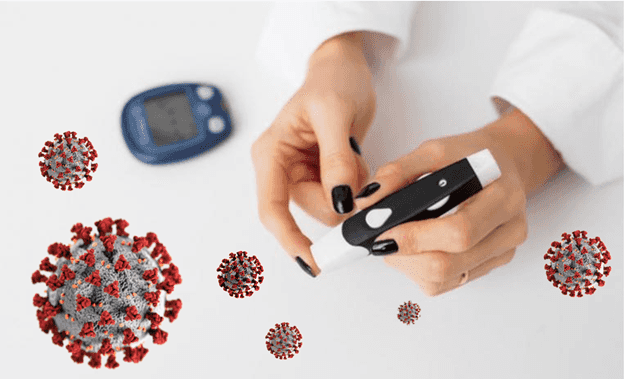
Higher HbA1c levels in patients with type 2 diabetes may increase the risk of hospitalization for COVID-19 infection

Diabetes is a disease with a high prevalence (more than 5.5million of patients with type 2 diabetes (T2D) in Central America and the Caribbean1); and the severe acute respiratory syndrome coronavirus 2 (SARS-CoV-2) has claimed more than 4 million lives worldwide since 2019. Diabetes has been implicated as a risk factor for increased mortality and morbidity in patients with Coronavirus infection (COVID-19), with a higher prevalence of diabetes in patients with severe outcomes, including hospitalization, admission to the intensive care unit (ICU), or death.
The purpose of this retrospective study is to evaluate the relationship between HbA1c and severity of acute COVID-19 infection outcomes in patients with T2D. The study included 39,616 patients from the data of a longitudinal, multicenter cohort of patients from the U.S. with COVID-19 infection (the National COVID Cohort Collaborative -N3C-).
The primary outcome was 30-day mortality following the date of COVID-19 diagnosis. Secondary outcomes included need for invasive ventilation or extracorporeal membrane oxygenation (ECMO), hospitalization within 7 days before or 30 days after COVID-19 diagnosis, and length of stay (LOS) for patients who were hospitalized.
The results show that there was an increased risk of hospitalization with increased levels of HbA1c (the higher the levels, the higher the risk); the risk of death reaches plateau at HbA1c >8% (p<0.01), and the risk of invasive ventilation or ECMO at HbA1c >9% (p<0.01).
HbA1c control is crucial for T2D patients to avoid not only the development of micro and macrovascular complications, but also, to reduce the risk of hospitalization, ventilation, ECMO, or death due to COVID-19.
To know more : Click here

Keep up to date with our content
Subscribe to our newsletter so that you are always up to date with the news.
